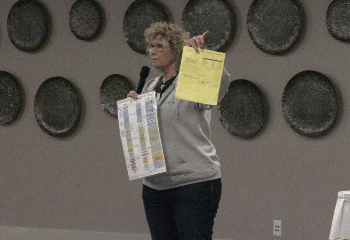WASHINGTON, D.C. – Millions of Americans live in areas that are considered food deserts, meaning a significant portion of residents don’t have easy access to grocery stores or nutritious food. Many of these people instead turn to convenience stores or fast-food options which can contribute to health issues.
“At a time when the food prices are too high for American families the persistent presence of food deserts is a problem that affects all of us,” said Sen. Kirsten Gillibrand (D- NY).
Senator Gllibrand said in New York alone, nearly two million people live in areas known as food deserts, where access to nearby grocery stores or fresh food options are limited. However, this problem extends well beyond New York. Online data shows millions of Americans live in food deserts.
“We know the most important decision you make is what you put on the end of your fork,” said Sandra Scheinbaum, author of “Your Health Coach Will See You Now”. “But what if that is determined not by you but by the zip code where you reside because you lack access to healthy food; food that is ultra processed so you have to fall back on fast food, ultra processed food. Often it’s not a choice it is you have no other option.”
Health experts said many people who live in food deserts turn to convenience stores or ultra processed foods.
“So in areas that are food deserts we know there’s a much higher risk in things like obesity, high blood pressure, increased blood sugar levels,” said Erin Palinski-Wade, a registered Dietitian. “When there is more accessibility to nutrient rich foods you’ll see across the board from young children to older adults, you’ll see health improvements. When we look at children, when they don’t have access to these healthy foods they’re falling short on key nutrients that are essential to growth. So, not only can we see developmental delays you can see cognitive delays and that’s going to hold them back academically they’re not going to be able to perform their best. When older adults are getting more of these nutrients on their plate they’re going to see improvements in things like blood pressure, blood sugar levels, obesity rates.”
“If we address food deserts, the implications would really be stunning,” said Scheinbaum. “We would again see drops in chronic disease because we know that what we eat is responsible for development of these chronic diseases that are lifestyle related diseases like heart disease, hypertension, obesity, like type 2 diabetes which is an epidemic proportion today.”
To address this issue, Senator Gillibrand is reintroducing legislation that would provide 50-million annually for the Healthy Food Financing Initiative. It’s a program under the USDA that offers loans and grants to incentivize grocery stores to establish locations in food deserts.
“In a country as rich and abundant as ours, no one should struggle to buy food,” said Sen. Gillibrand.

















